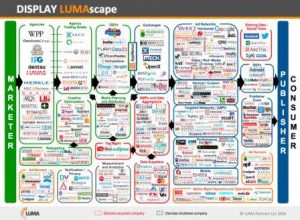Global commerce media platform Criteo on how AI will be a big differentiator for retailers in the coming weeks.

Criteo expects AI to make a significant difference during Cyber Week and the holiday season.
“Criteo has been working on AI for the best part of 20 years,” said Romain Lerallut, VP and head of Criteo’s AI Lab. “We used to call it machine learning. One thing I’ve been amazed by over the last couple of years is the speed — it’s like a hockey stick — so everything I say today might be obsolete by tomorrow. Caveat emptor.”
What AI can bring to the holidays. Lerallut sees two key trends. “One is business as usual — AI for performance and personalization — but it will do it better.” The deployment of genAI in the customer journey means that recommendations or additional items for a shopping list can be generated without feeding the shopping list into a third-party LLM like ChatGPT (Lerallut’s example was AI suggesting a good Burgundy to accompany a boeuf Bourguignon).
“The other area is using generative AI to create content,” he said. Copywriting, generating descriptions for the product page and creating images — these uses are table stakes. “One thing we are testing is taking a product image, usually on a white background, and making it look fancier. What kind of image will resonate with a certain audience?”
The holidays are different. Of course, product recommendations, whether driven deterministically (manual algorithms) or based on some form of AI have been around for a long time. These are essentially predictive recommendations that assume the future will look like the past. But the holiday season can disrupt that pattern.
“You might want to purchase something a little bit different,” said Lerallut, “maybe you’re not buying for yourself but buying for your family. The new types of AI actually can capture those things, knowing it’s the festive season: ‘That thing that you would buy normally, I am going to push the premium version of it.’ Those models know about context, they know about the world.” Standard recommendation engines are only working with purchase data, sometimes from just the last few months.
But can mid-size retailers take advantage? Some aspects of AI are already becoming commoditized, said Lerallut. “It becomes easier to access the first tier of capabilities. A tiny, single-person enterprise can absolutely accelerate their content creation.”
What is going to be harder to access is the second-tier, personalized AI generation. That means having access to a lot of data on a brand’s customers, on audiences. “That is not going to be available off-the-shelf,” he said. “This is why Criteo has a strong opportunity, enabling all our clients, big and small, to have enough access to those capabilities.”
Seeing interactions with billions of users around the world give Criteo a deep well of consumer data. “We can give our clients access to something they wouldn’t have on their own.” (Lerallut emphasized that this is done in a compliant way.)
Bringing consumers on board. To some extent, the AI will work under the hood, unnoticed by users (Lerallut observes that in Europe, there are requirements for labeling AI activity). “If the AI does its job, it should be transparent and natural,” said Lerallut. “It should feel like something useful and helpful.” In particular, he feels it should be transparent about product recommendations, serving the interests of the retailers. “But if we do our job the best we can, the recommendation of products becomes a service to the users. It’s also a service to our clients.”
It’s about successful match-making, said Lerallut. Done well, it’s not a nuisance.
Why we care. It’s not just hype. That’s the bottom line. Will all this aspirational AI, aimed at providing shopping assistance while upselling and growing baskets, appeal to consumers? Major vendors are betting on it. We’ll soon see.
The post AI is ringing in big holiday shopping changes appeared first on MarTech.
(4)
Report Post








